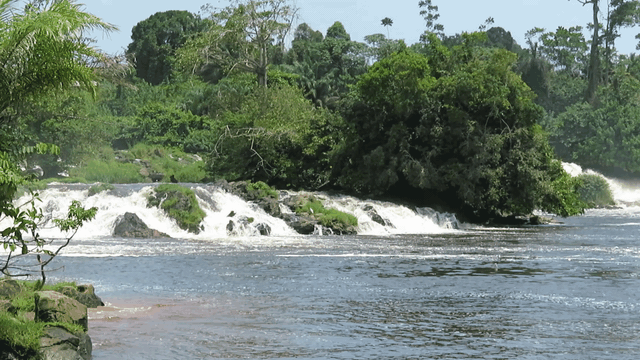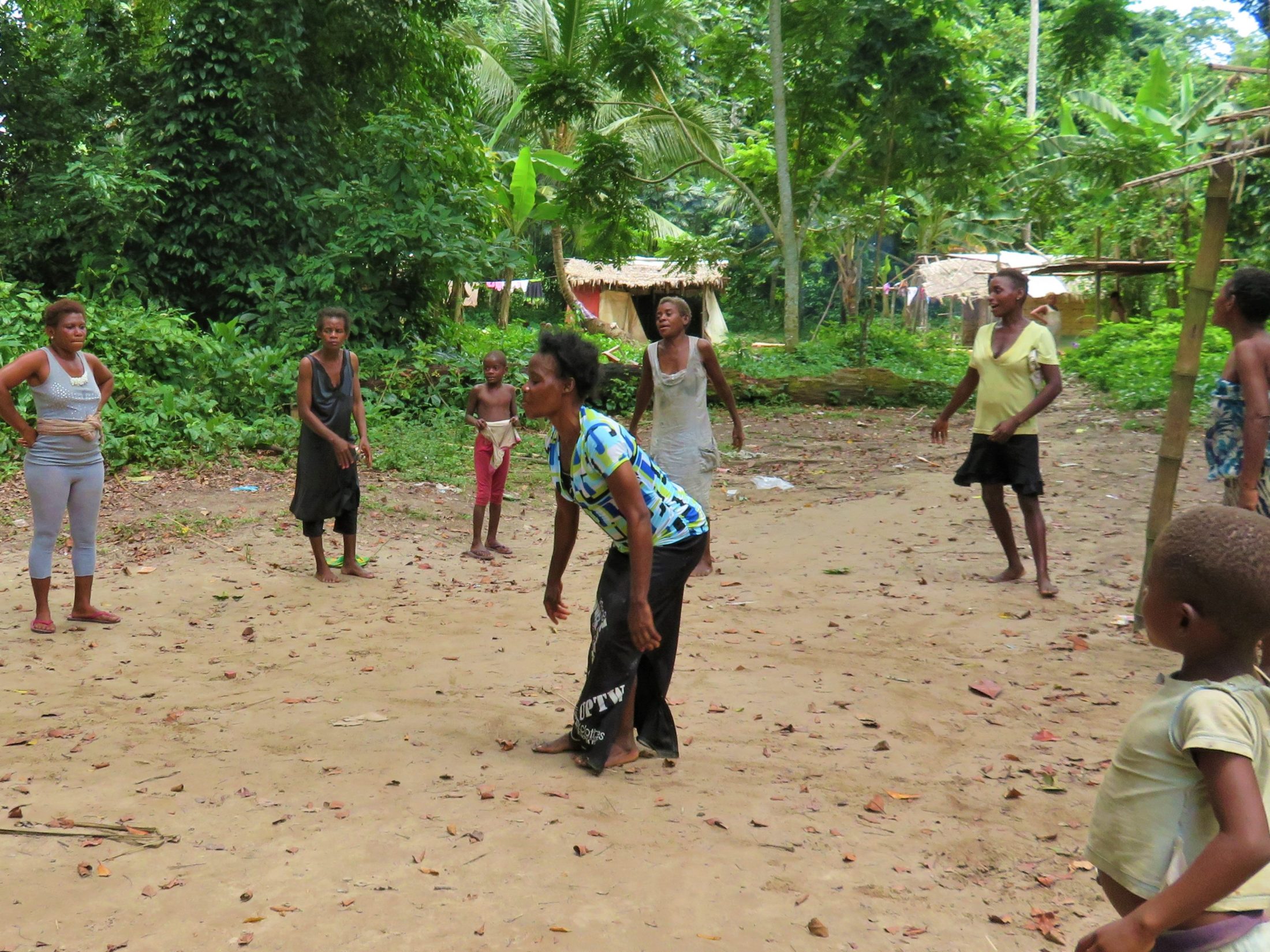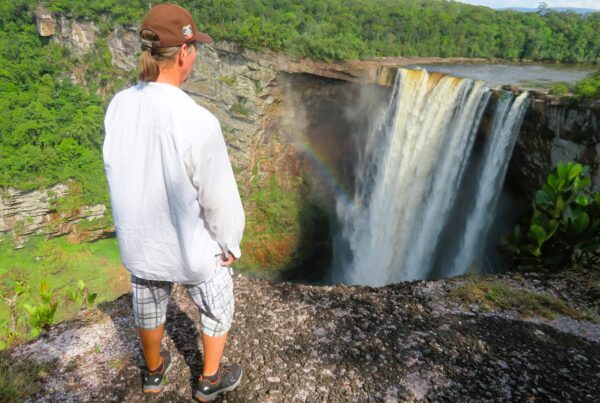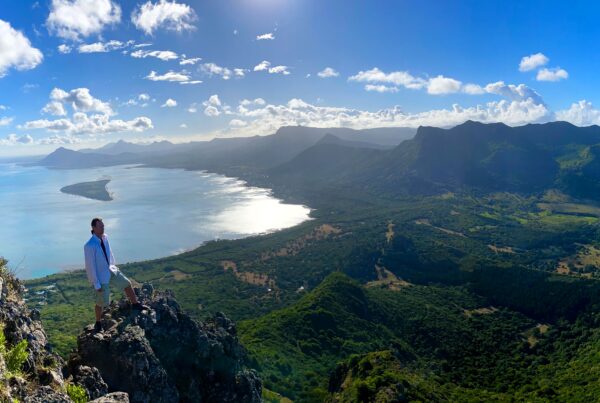“Sadly, Kim, Cameroon’s Baka pygmies have evolved from ancient hunter-gatherers to modern dancers for tourists.”
The Baka people have been hunting and foraging in the central African rain forest—in modern day
Cameroon, Congo, and Gabon—for thousands of years. But their forest habitat is being hijacked by loggers, poachers, and developers.
Near the popular beach town of Kribi, the Batanga and Mabi tribes offer pirogue (canoe) rides up the Lobe River to visit Baka “campements pygmees.”
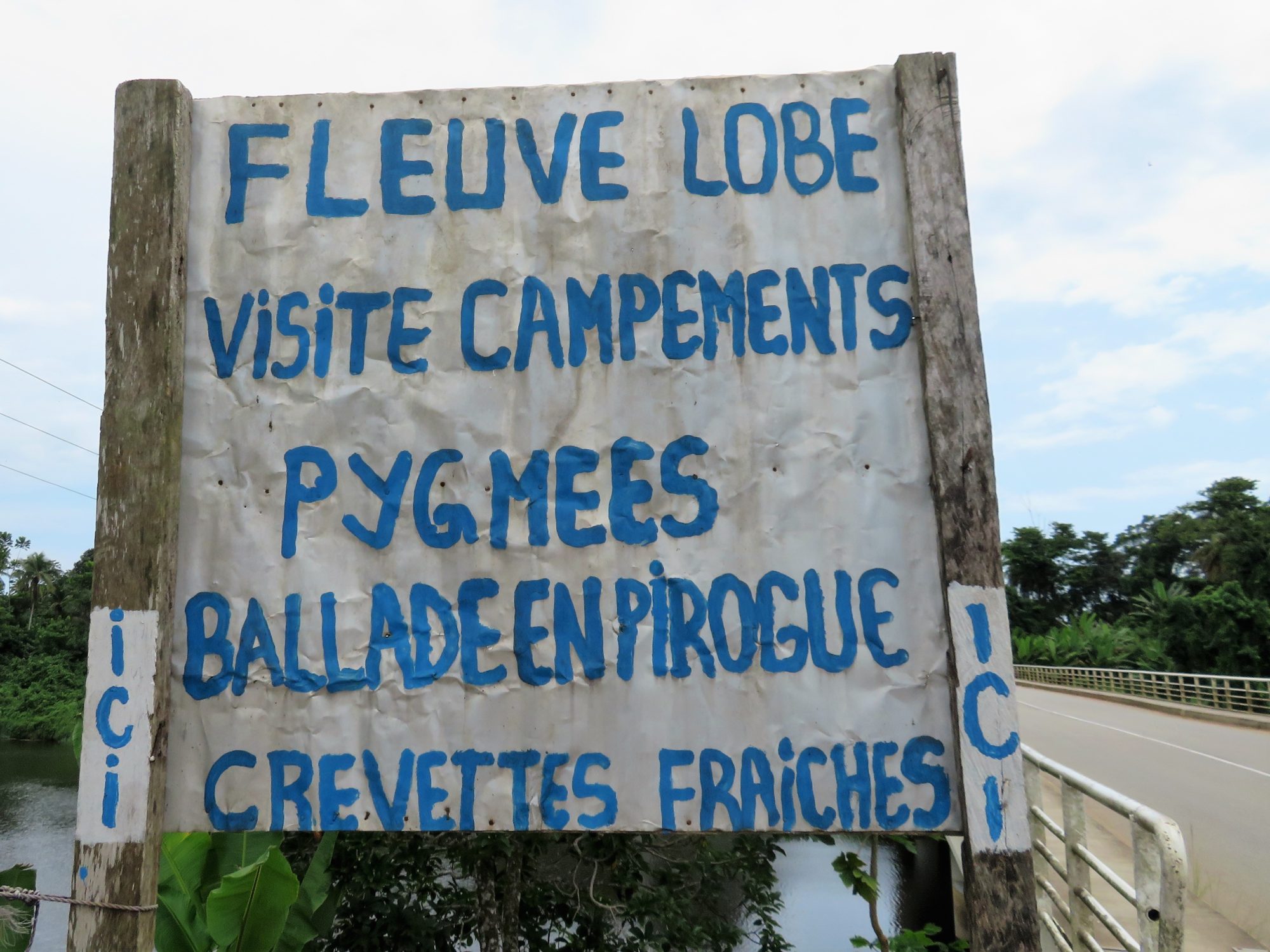
We came to Kribi to get a Kim’s View at the coastal “waterfall” where the Lobe River plunges into the Atlantic. But first, a pirogue ride upriver to check out the Baka.
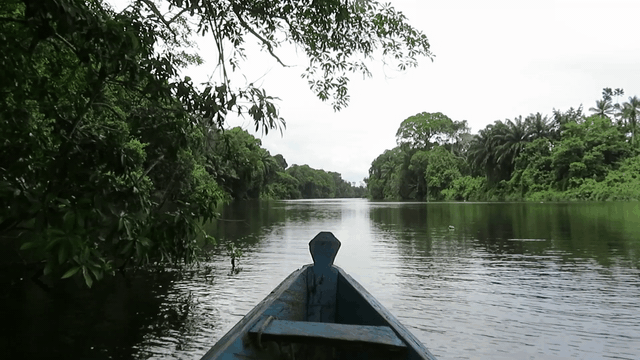
We docked our pirogue where the riverbank was full of trash. The “village” was just a few huts that looked temporary.
“Strangely, Sis, nobody was abnormally small.”
Two toddlers were crying as I walked by. Then another kid started balling when I took photos of his grandma’s dress, a colorful print with their president’s dictator’s face.
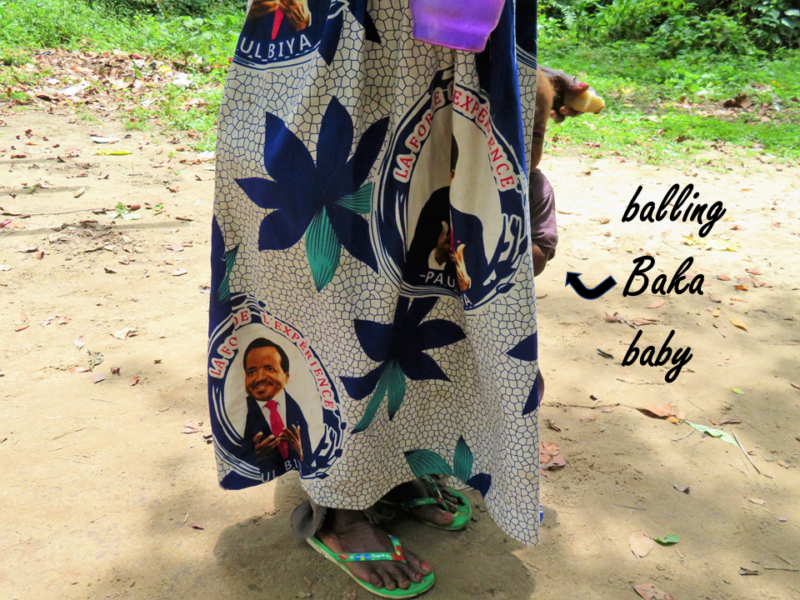
The guide pointed to my pasty-white skin, “the children are afraid of you.”
I felt like Casper the Friendly Ghost, scaring the hell out of everyone.
The Baka chief was friendly and seemed genuinely interested in teaching me about his people. One of the men started interpreting for the chief, “Do you have any questions?”
“Yes, how is life for the Baka people?”
The answer to that question was obvious; the chief’s son sat next to him with a bloated, hungry stomach.
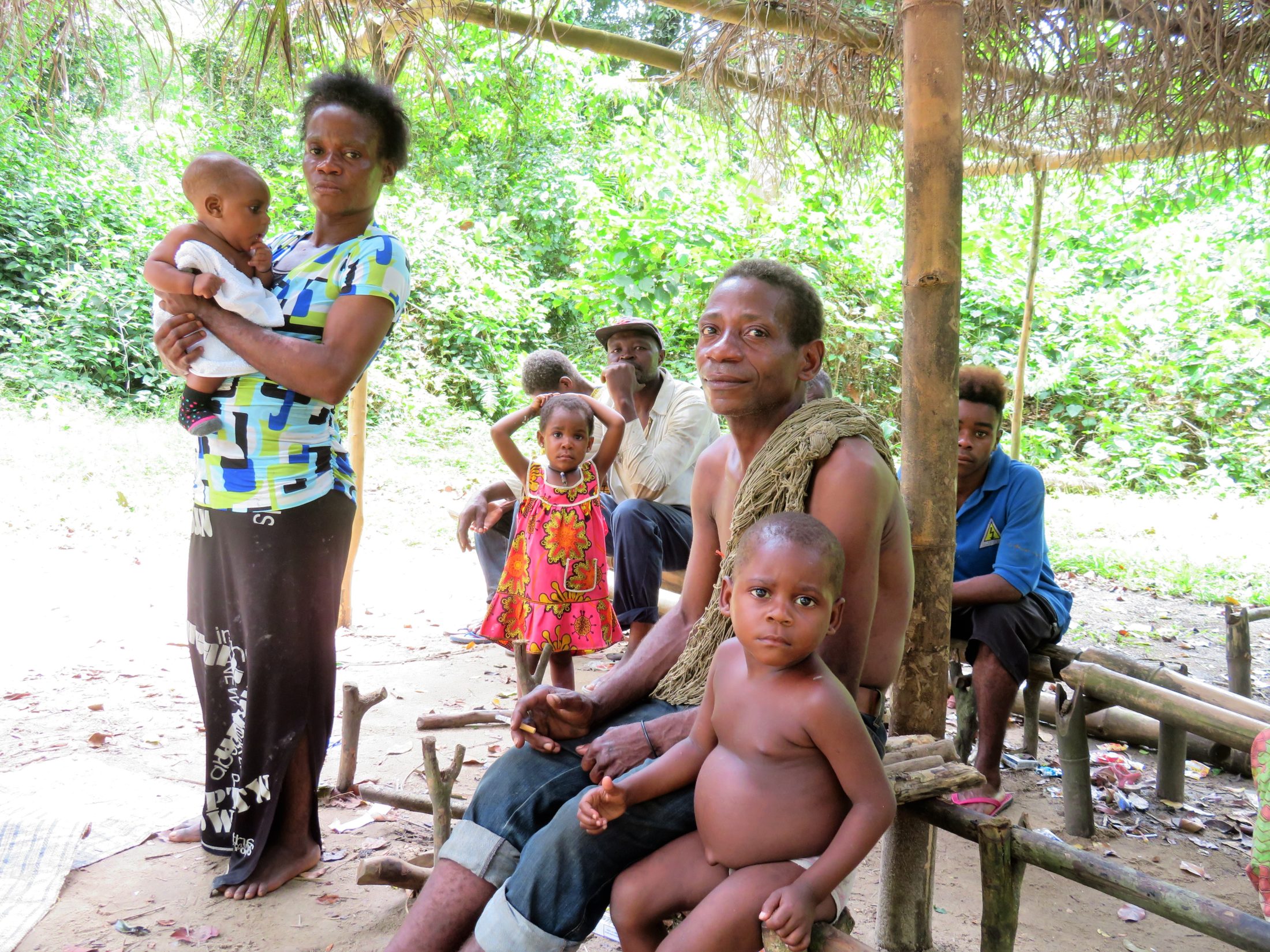
“Our life is difficult. We don’t have anything to eat.”
The chief said they must hunt very deep in the forest now, and they often come back empty-handed. The logging companies kick them out and poachers from surrounding tribes trap animals in the forest.
Another clue to the Baka people’s dire straits was the trash at the chief’s feet; empty whiskey pouches—that sell for seventeen cents—and cigarette boxes.
Clueless about pygmy-village-tour protocol, I didn’t know what to do. I sat down with the men and there was awkward silence.
“Do you want the women to dance for you?”
Well you know me, Kim, I never refuse dancing women.
“Yes, of course.”
The interpreter quoted ten thousand francs for the women to dance. I bargained for five thousand francs ($9). Done deal.
But immediately after we struck the deal, several women shouted angrily at the interpreter, and he yelled back.
“Did these women object to dancing for only one, skinny, white ghost for a measly nine dollars?”
About ten women reluctantly gathered in a circle and started playing tag while the men beat drums, chanted, and clapped.
The woman being tagged had to “dance” in the middle of the circle. There was more tagging than dancing.
Of course, Kim, why would any woman object to a degrading dance in front of a geeky stranger with a camera? Go figure.
The modern world is replacing the Baka pygmy’s ancient world of hunting and foraging in the forest.
And you’re right, Sis, I poured fuel on the fire; adding nine dollars to the Baka men’s alcohol and smokes fund.
Hopefully the Baka women—who did all the work/dancing—will get a big chunk of our nine bucks. But I’m not betting on it.
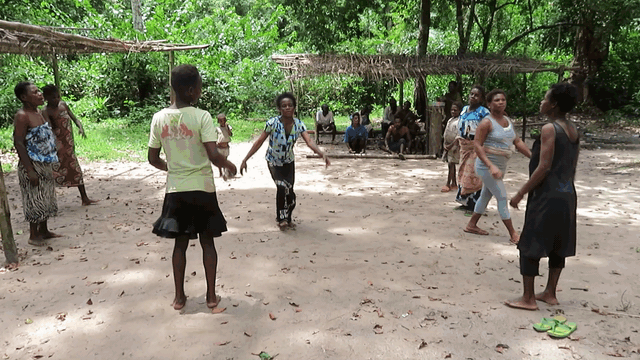
“Our pygmy village tour probably just funded more whiskey and cigarettes.”
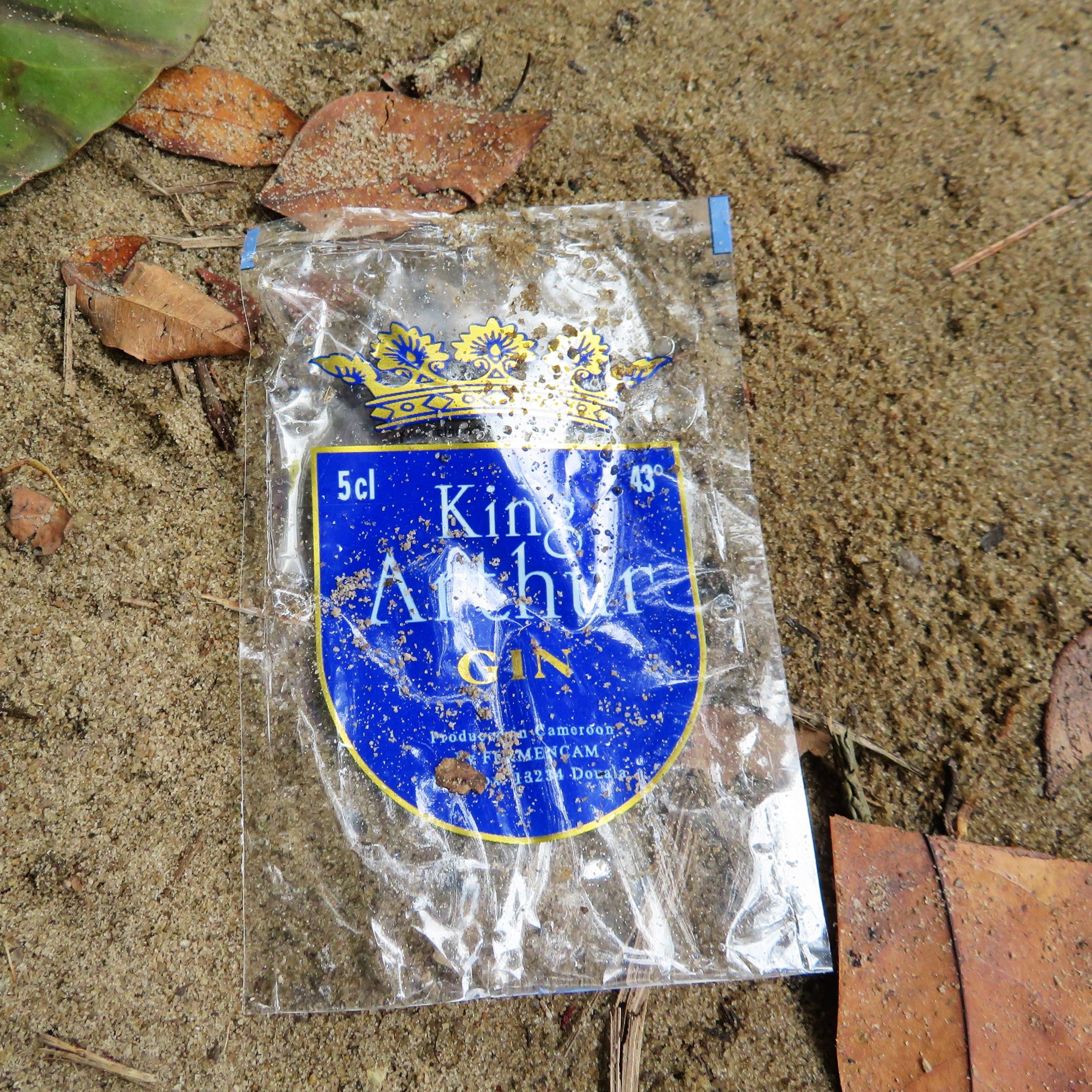
We took the pirogue back downriver, then hopped on a motorcycle taxi toward the waterfall Chutes de la Lobe. Kim’s View – Cameroon is more rapids than waterfall, but beautiful none the less.
Kim’s View at Chutes de la Lobe
